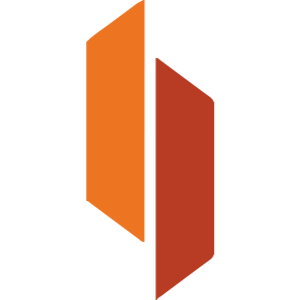Helius Medical Technologies, Inc. Announces Third-Party Reimbursement for PoNS® from Major Insurance Carrier
Rhea-AI Summary
Helius Medical Technologies announced that it secured its first third-party reimbursement for its Portable Neuromodulation Stimulator (PoNS) device from a major insurance carrier. The reimbursement rate is set at $23,900, slightly below the list price due to a 7% rebate. This milestone follows the Centers for Medicare & Medicaid Services’ (CMS) establishment of unique codes for the PoNS mouthpiece and controller. Helius is actively negotiating with additional third-party payers and assisting multiple sclerosis (MS) patients in submitting claims. The reimbursed rate is broken down to $16,554 for the controller and $7,347 for the mouthpiece.
Positive
- Secured first third-party reimbursement for PoNS device.
- Reimbursement rate is $23,900, close to list price.
- Established unique coding for PoNS with CMS.
- Actively negotiating with additional third-party payers.
- Assisting MS patients in claims submissions.
Negative
- Reimbursement rate includes a 7% rebate, lowering the final amount received.
- No confirmed reimbursement deals with other third-party payers yet.
News Market Reaction 1 Alert
On the day this news was published, HSDT gained 4.03%, reflecting a moderate positive market reaction.
Data tracked by StockTitan Argus on the day of publication.
-- Reimbursement at
-- Represents a significant milestone toward increasing accessibility of PoNS --
NEWTOWN, Pa., May 29, 2024 (GLOBE NEWSWIRE) -- Helius Medical Technologies, Inc. (Nasdaq:HSDT) (“Helius” or the “Company”), a neurotech company focused on delivering a novel therapeutic neuromodulation approach for balance and gait deficits, today announced the first third-party reimbursement from a major insurance carrier for the Company’s Portable Neuromodulation Stimulator (PoNS®) device.
“Securing widespread reimbursement for PoNS remains a top priority for us, and we are thrilled to announce that we’ve received our first third-party reimbursement for this innovative device at the list price with a
“We believe this is yet another important milestone in establishing the market pricing for PoNS as we continue to negotiate with other third-party payers and CMS. In addition, we are assisting several MS patients who have or are preparing to submit claims with other third-party payers and look forward to establishing reimbursement rates with those carriers as we move forward,” concluded Andreeff.
The reimbursed rate, net of a
About Helius Medical Technologies, Inc.
Helius Medical Technologies is a leading neurotech company in the medical device field focused on neurologic deficits using an orally applied technology platform that amplifies the brain’s ability to engage physiologic compensatory mechanisms and promote neuroplasticity, improving the lives of people dealing with neurologic diseases. The Company’s first commercial product is the Portable Neuromodulation Stimulator. For more information about the PoNS® or Helius Medical Technologies, visit www.heliusmedical.com.
About the PoNS Device and PoNS Therapy
The Portable Neuromodulation Stimulator (PoNS) is an innovative, non-implantable, orally applied therapy that delivers neurostimulation through a mouthpiece connected to a controller and it’s used, primarily at home, with physical rehabilitation exercise, to improve balance and gait. The PoNS device, which delivers mild electrical impulses to the tongue, is indicated for use in the United States as a short-term treatment of gait deficit due to mild-to-moderate symptoms from multiple sclerosis (“MS”) and is to be used as an adjunct to a supervised therapeutic exercise program in patients 22 years of age and over by prescription only.
PoNS has shown effectiveness in treating gait or balance and a significant reduction in the risk of falling in stroke patients in Canada, where it received authorization for sale in three indications: (i) for use as a short-term treatment (14 weeks) of gait deficit due to mild and moderate symptoms from stroke and is to be used in conjunction with physical therapy; (ii) for use as a short-term treatment (14 weeks) of chronic balance deficit due to mild-to-moderate traumatic brain injury (“mmTBI”) and is to be used in conjunction with physical therapy; and (iii) for use as a short-term treatment (14 weeks) of gait deficit due to mild and moderate symptoms from MS and is to be used in conjunction with physical therapy. PoNS is also authorized for sale in Australia for short term use by healthcare professionals as an adjunct to a therapeutic exercise program to improve balance and gait. For more information visit www.ponstherapy.com.
Cautionary Disclaimer Statement
Certain statements in this news release are not based on historical facts and constitute forward-looking statements or forward-looking information within the meaning of the U.S. Private Securities Litigation Reform Act of 1995 and Canadian securities laws. All statements other than statements of historical fact included in this news release are forward-looking statements that involve risks and uncertainties. Forward-looking statements are often identified by terms such as “believe,” “expect,” “continue,” “will,” “goal,” “aim” and similar expressions. Such forward-looking statements include, among others, statements regarding the Company’s ability to negotiate acceptable reimbursement rates with additional third-party payers, the potential for patients to submit additional claims with other third-party payers, and the uses and effectiveness of PoNS and PoNS Therapy.
There can be no assurance that such statements will prove to be accurate and actual results and future events could differ materially from those expressed or implied by such statements. Important factors that could cause actual results to differ materially from the Company’s expectations include uncertainties associated with the Company’s capital requirements to achieve its business objectives, availability of funds, the Company’s ability to find additional sources of funding, manufacturing, labor shortage and supply chain risks, including risks related to manufacturing delays, the Company’s ability to obtain national Medicare insurance coverage and negotiate reimbursement with other third-party payers, the Company’s ability to continue to build internal commercial infrastructure, secure state distribution licenses, market awareness of the PoNS device, future clinical trials and the clinical development process, the product development process and the FDA regulatory submission review and approval process, other development activities, ongoing government regulation, and other risks detailed from time to time in the “Risk Factors” section of the Company’s Annual Report on Form 10-K for the year ended December 31, 2023, and its other filings with the United States Securities and Exchange Commission and the Canadian securities regulators, which can be obtained from either at www.sec.gov or www.sedar.com.
The reader is cautioned not to place undue reliance on any forward-looking statement. The forward-looking statements contained in this news release are made as of the date of this news release and the Company assumes no obligation to update any forward-looking statement or to update the reasons why actual results could differ from such statements except to the extent required by law.
Investor Relations Contact
Lisa M. Wilson, In-Site Communications, Inc.
T: 212-452-2793
E: lwilson@insitecony.com







